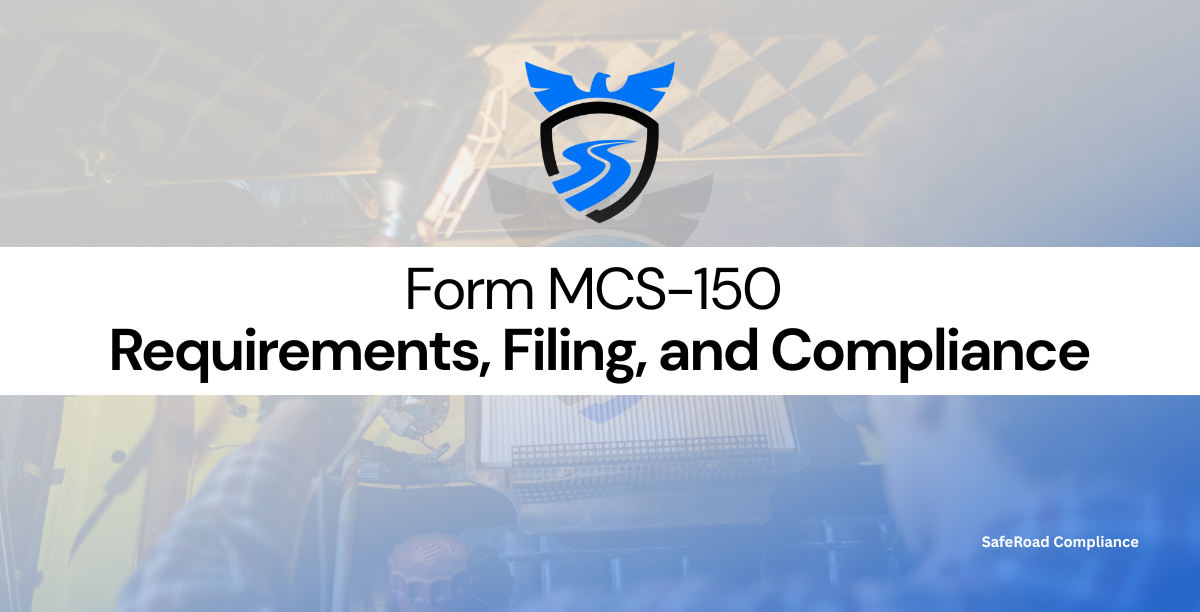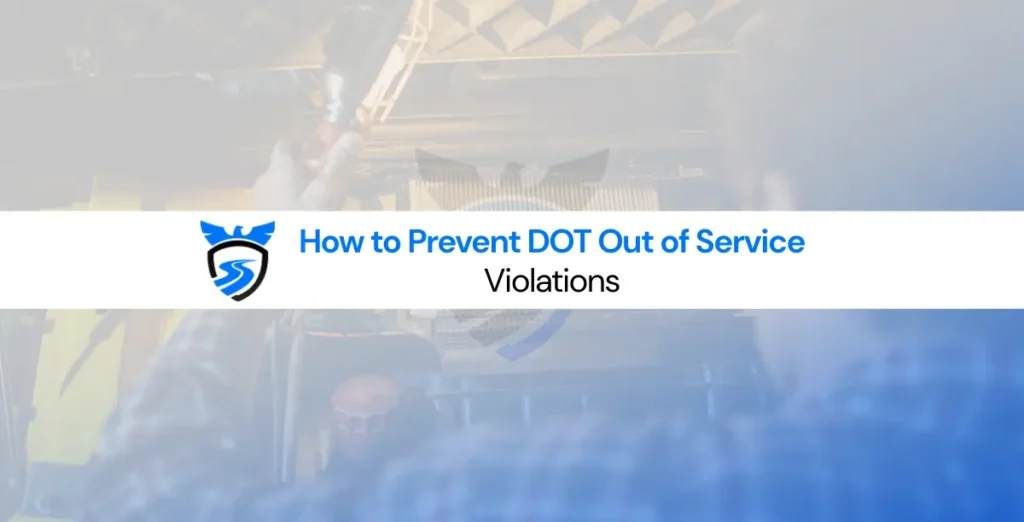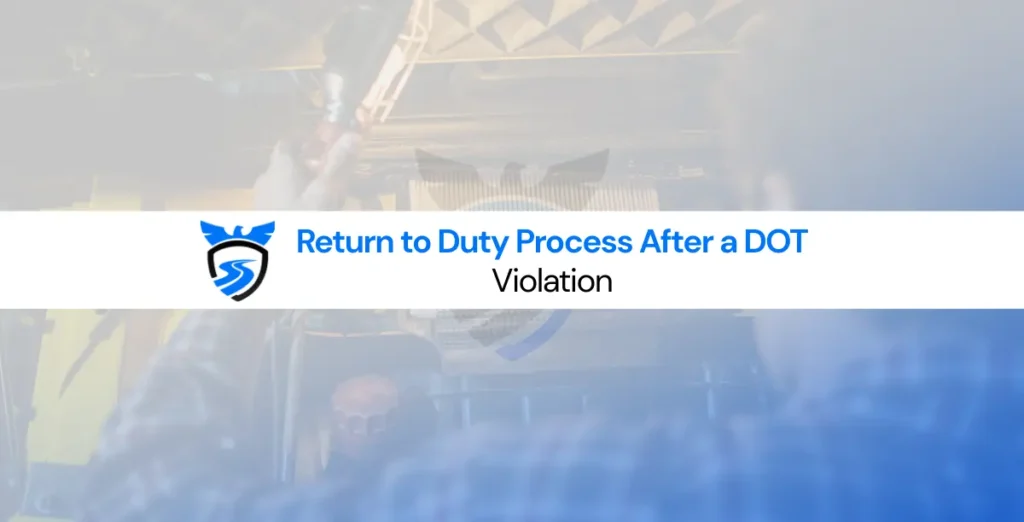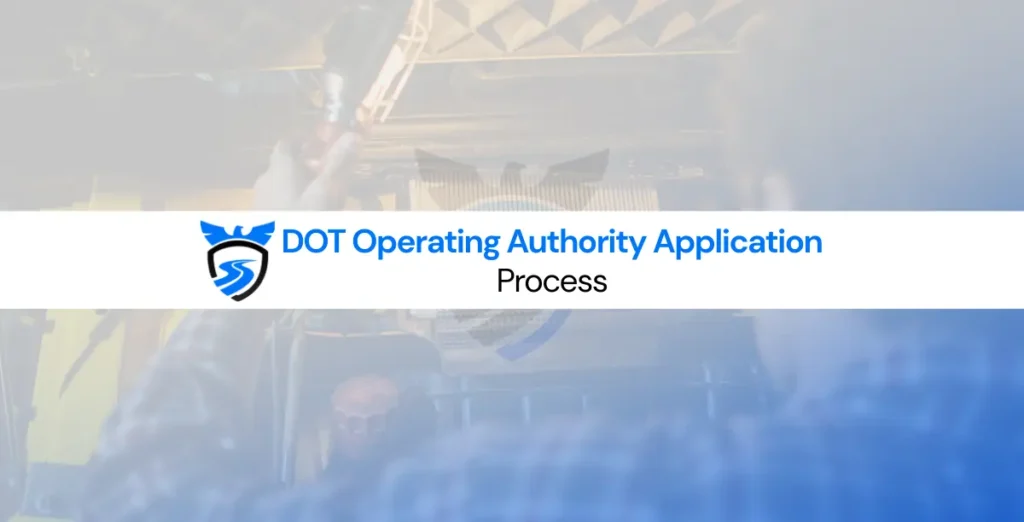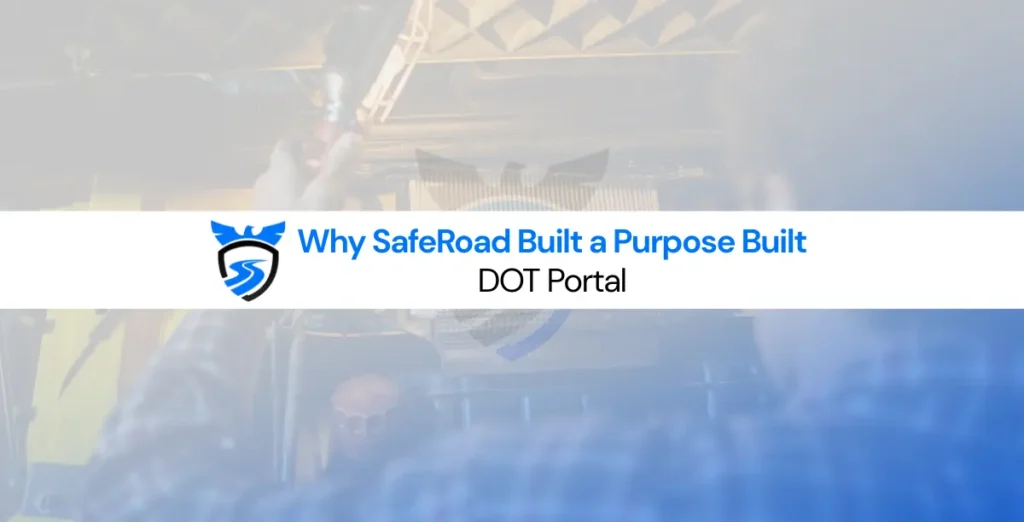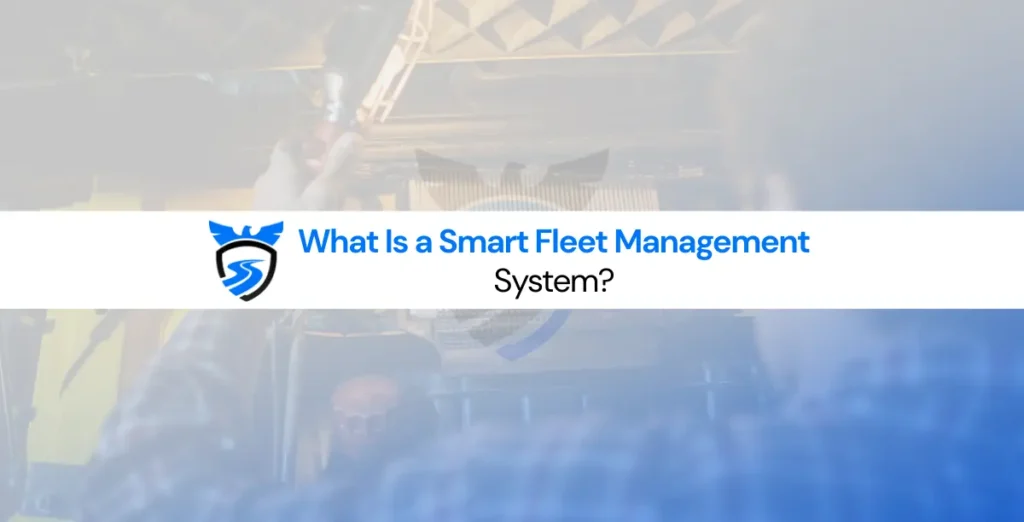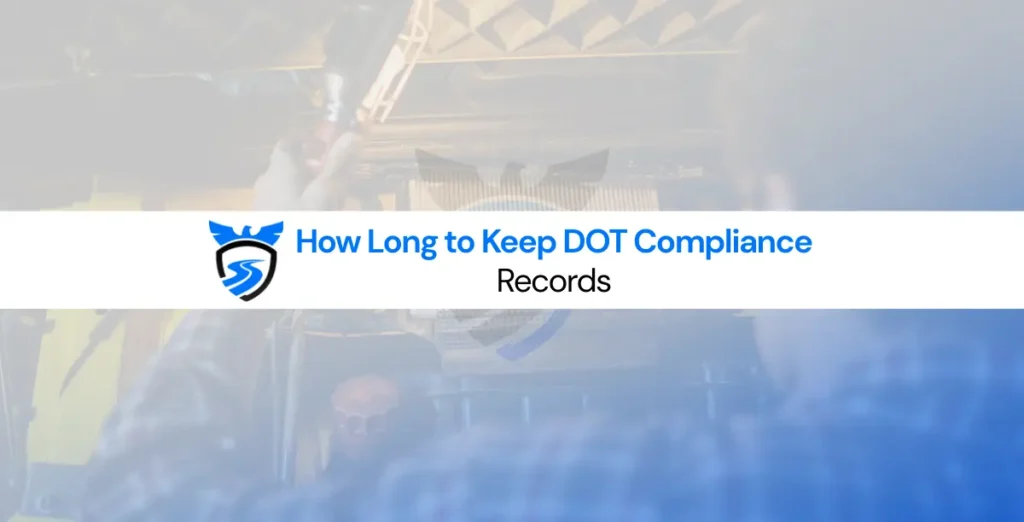What is Form MCS-150?
The MCS-150, officially titled the Motor Carrier Identification Report, is a mandatory filing required by the Federal Motor Carrier Safety Administration (FMCSA).
This form establishes and maintains a company’s USDOT record by capturing key data, including business information, fleet details, hazardous materials involvement, cargo classifications, and operational scope.
Initially, the form was used for new USDOT number applications, but since 2015, first-time applicants must apply through the Unified Registration System (URS).
Today, the MCS-150 functions primarily as a biennial update mechanism or as a formal notice of operational changes such as address modifications, ownership adjustments, or termination of interstate operations.
Carriers, brokers, freight forwarders, and hazardous materials shippers are all subject to this reporting requirement if they operate under USDOT jurisdiction.
The form also ties directly to compliance safety accountability (CSA) scores since reported vehicle miles traveled (VMT), driver counts, and hazardous materials data influence FMCSA safety monitoring systems.
Failure to keep this record accurate exposes companies to penalties, suspension of operating authority, and even deactivation of USDOT numbers.
Who is Required to File the MCS-150?
Any entity operating as a motor carrier, intermodal equipment provider, or hazardous materials shipper under FMCSA jurisdiction must maintain an updated MCS-150 record.
This includes both interstate and intrastate carriers engaged in transporting hazardous materials requiring placarding under federal law. Even private carriers that exclusively transport their own goods must comply.
Importantly, carriers that are no longer in operation must still file an “Out of Business Notification” through the MCS-150 to formally notify FMCSA. Failure to provide this notification leaves a USDOT number active, exposing the business to unnecessary regulatory oversight and possible enforcement action.
For companies whose operating authority has been revoked under the New Entrant Program, reapplication requires submission of the MCS-150 with supporting documentation.
The broad applicability of this filing stems from its role in tracking safety performance. Whether a company operates a single power unit or an entire fleet, FMCSA uses this information to assess compliance under 49 CFR Parts 390–399. Thus, every regulated entity must carefully determine its filing status and ensure timely updates.
When to File and Biennial Update Deadlines
FMCSA mandates that carriers file the MCS-150 form:
- Before commencing regulated operations.
- Every 24 months, as part of the biennial update requirement.
Deadlines are tied directly to the USDOT number. The second-to-last digit determines whether filing occurs in odd or even years, while the last digit establishes the filing month. For example, a USDOT number ending in “45” requires filing in May of odd-numbered years.
Failure to file by the designated deadline results in the automatic deactivation of the USDOT number and may lead to fines of up to $10,000.
FMCSA also imposes civil penalties for companies that continue to operate without an active USDOT number. Since mailed applications can take up to six weeks to process, online submissions through the FMCSA Portal are strongly recommended to avoid late filings.
Even if a company’s information has not changed, the biennial update must be submitted. Carriers that overlook this obligation face unnecessary disruptions in operating authority and potential compliance investigations.
How to File Form MCS-150
FMCSA provides two filing options: online submission through the FMCSA Portal or paper filing via mail. The online method is strongly encouraged due to its accuracy checks and immediate issuance of updated records. The estimated online filing time is approximately 20 minutes.
The process begins with obtaining a USDOT PIN through the FMCSA Safer system, followed by establishing a Login.gov account, which serves as the single sign-on for all federal online services. With these credentials, company officials can create or access their FMCSA Portal account and submit the MCS-150 electronically.
Paper submissions require mailing the completed form to FMCSA headquarters in Washington, D.C., but these applications take four to six weeks for processing and are more prone to rejection if incomplete.
Regardless of the method, the form requires detailed entries including company operations, cargo classifications, hazardous materials status, vehicle counts, driver information, and ownership certification. Companies must ensure that the certification is signed by an authorized corporate officer or owner to avoid rejection.
Key Compliance Risks and Penalties
Filing the MCS-150 is not a mere administrative exercise; it directly impacts regulatory standing. Noncompliance can result in severe enforcement actions. These include:
- Deactivation of USDOT number: Prohibiting interstate operations.
- Civil fines: Up to $1,000 per day, capped at $10,000 per violation.
- Safety score distortions: Incorrect mileage or fleet reporting can negatively skew CSA scores, making carriers appear riskier than they are.
- Operating authority complications: FMCSA may reject requests for reinstatement or modification of operating authority if the MCS-150 record is outdated.
Additionally, carriers transporting hazardous materials face heightened scrutiny. Incorrect disclosure of cargo classifications or hazardous materials can trigger compliance investigations and potential suspension of permits. For businesses engaged in federal contracting, inaccurate or delinquent filings may also affect eligibility for government tenders.
Maintaining accuracy and timeliness in MCS-150 filings is therefore an essential compliance obligation, not just a procedural formality.
Conclusion: Ensuring DOT Compliance with Expert Support
Maintaining compliance with FMCSA requirements goes beyond filing Form MCS-150 on time. Every motor carrier must treat accurate recordkeeping and timely updates as integral parts of operational risk management.
Since missing a biennial update can lead to USDOT deactivation, penalties, and loss of operating authority, many companies choose to work with trusted compliance partners who streamline the process and reduce risk exposure. If you are looking for reliable assistance to stay current with regulatory filings, consider professional DOT compliance services. Expert guidance not only helps carriers file the MCS-150 correctly but also ensures that every aspect of FMCSA compliance, such as safety permits, registration updates, and operating authority requirements, is handled with precision. This proactive approach keeps your business legally protected and operational without interruption.
FAQs about Form MCS-150
The form establishes and maintains a USDOT record with FMCSA, providing essential safety, operational, and compliance data used in regulatory monitoring.
Every two years, according to the USDOT number schedule, regardless of whether company information has changed.
Yes, but paper submissions take four to six weeks. Online filing is recommended for accuracy and immediate confirmation.
Your USDOT number will be deactivated, and you may incur civil penalties of up to $10,000.
An owner, partner, or corporate officer authorized to certify company records must sign. Unauthorized signatures result in rejection.
Yes. They must provide detailed cargo classification and hazardous materials information and may need to file MCS-150B if transporting certain federally regulated quantities.
SafeRoad Compliance: Your Compliance Partner
Filing your MCS-150 Biennial Update correctly and on time is critical to keeping your business compliant and your trucks on the road.
With SafeRoad Compliance, you get reliable support, accurate submissions, and peace of mind.
